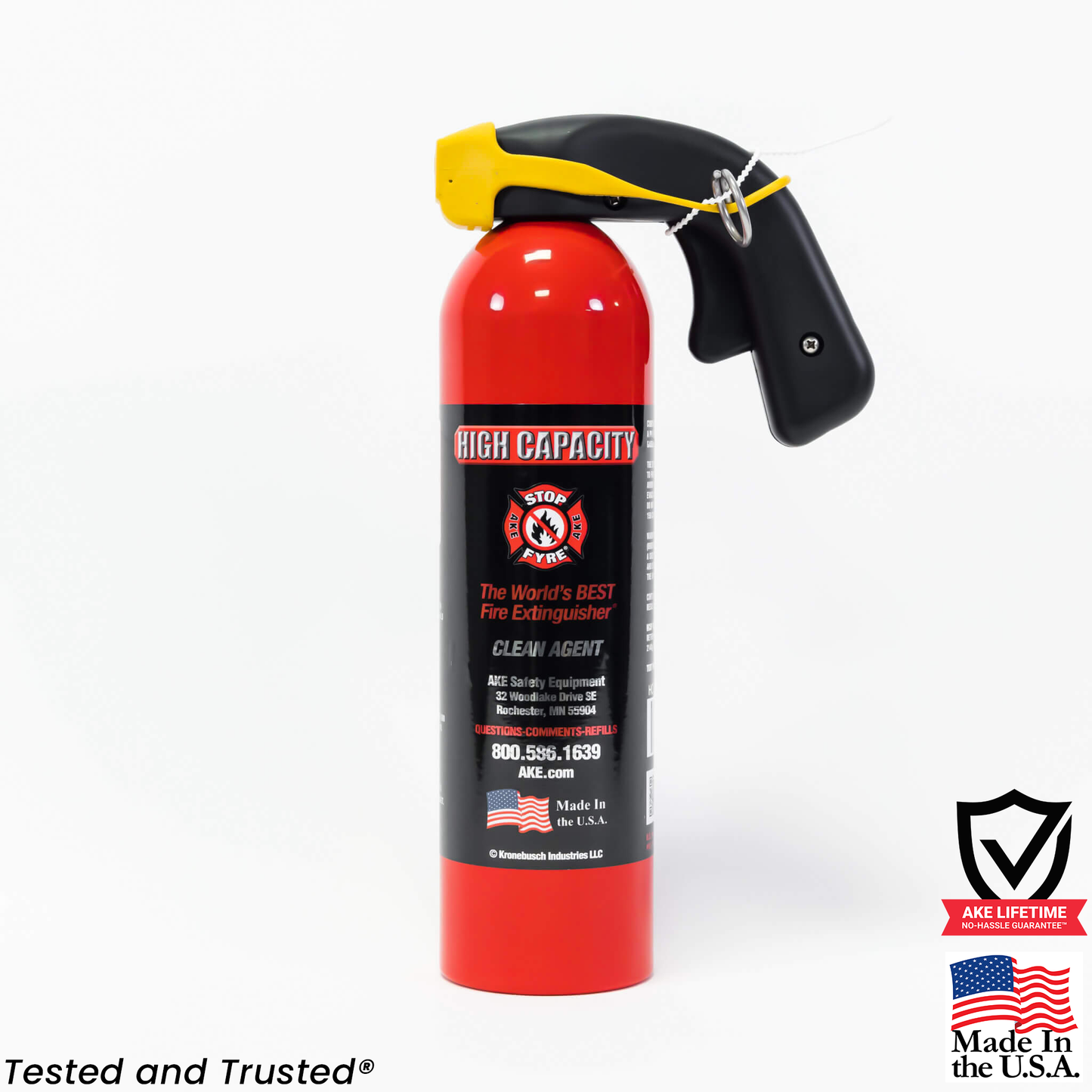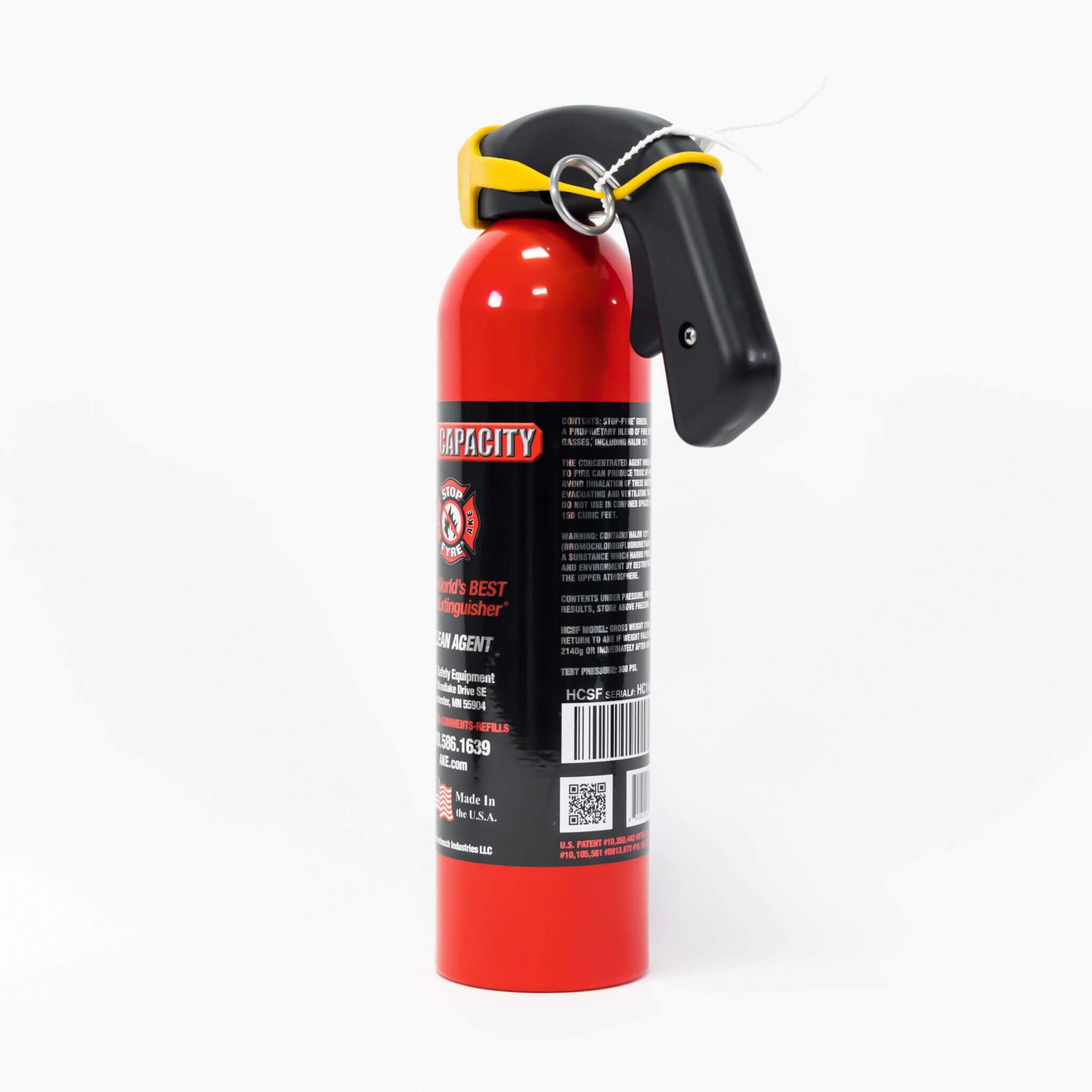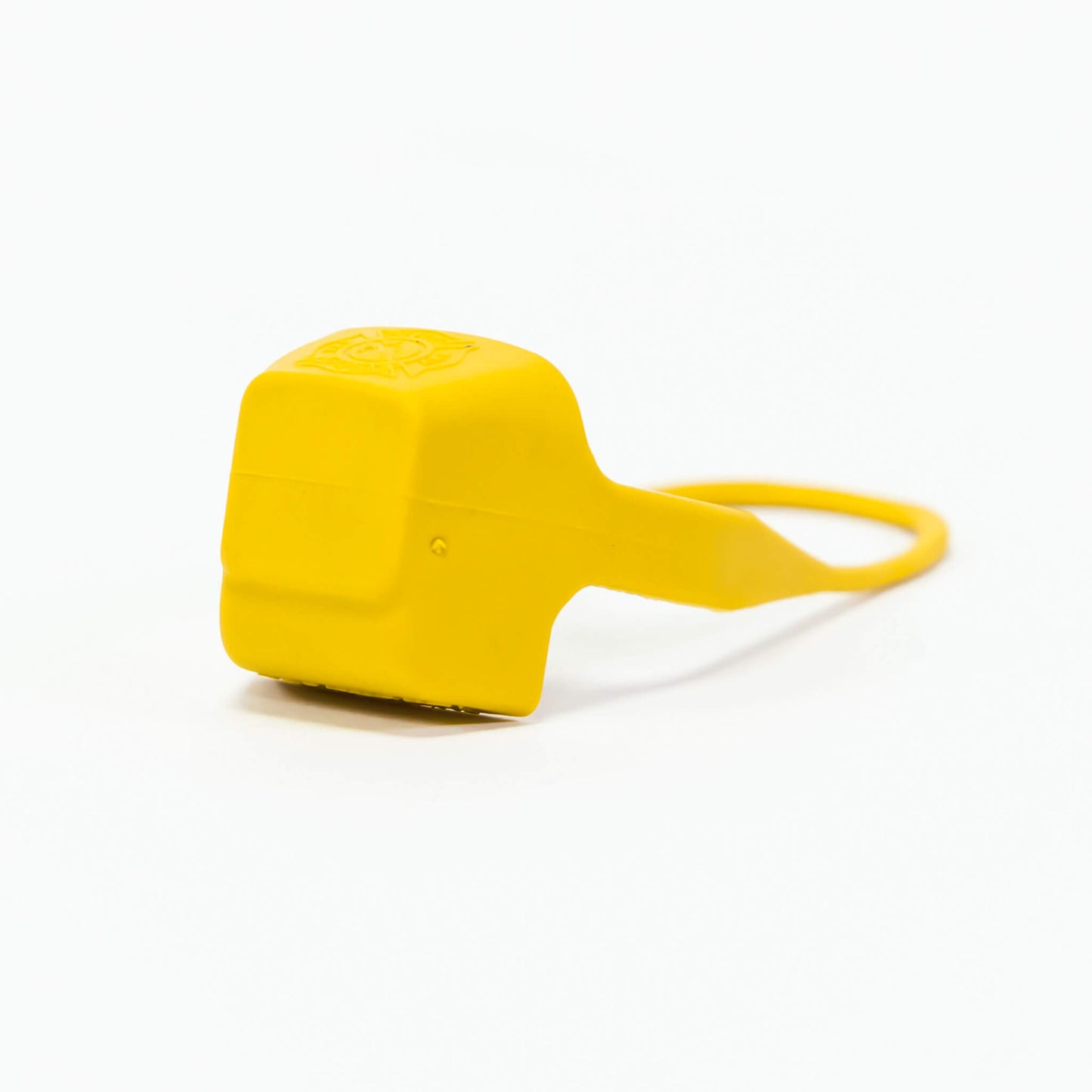
Is Your Farm Really Fire-Ready? Most Aren’t — Here’s What You Need to Know
Share
Is Your Operation Prepared for Fire?
Farms are highly susceptible to fires. Here is the question we want you to ponder today:
According to the National Fire Protection Association (NFPA), every American household will have a fire every 10 years, but farms and operations are three times more likely to have a devastating fire. On an operation a fire tragedy can cost an average of over $100,000, harm lives, and ultimately jeopardize your livelihood. That’s why it is so important to have fire extinguishers strategically placed throughout your operation.
The Ultimate Farm Fire Safety Checklist
Many people often wonder how many fire extinguishers do I need? What’s recommended? Well years ago, a fire marshal recommended to our CEO, Allen Kronebusch, to be prepared for fire emergencies by mounting extinguishers in an easily accessible location so you’re never further away than 6 seconds. It’s important to have extinguishers strategically placed because a fire actually doubles in size about every 10 seconds and will grow out of control in average of 30-60 seconds. On top of that, the average rural response time can be over 30 minutes, which is time you may not have.
That’s why we recommend you have an extinguisher in your home, especially your kitchen, as 2/3rds of all home fires start there. However, you also need an extinguisher in your bedroom because most deadly fires occur at night when you are sleeping. You also want one by all heating and clothes drying appliances. As an additional rule of thumb, you need extinguishers in all of your outbuildings in each entry point and above the light switch. Lastly, you want it on all machinery and equipment you like… Just the stuff you like.
With proper prevention and preparation a fire can be a minor inconvenience instead of a devastating loss of property and life. Learn more about some places we recommend you have an extinguisher such as…

Barns
Rodents and small animals love to build nests and chew on wiring in places like barns. Damaged wiring can become faulty and emit a spark and unfortunately one spark is all it takes to quickly ignite materials often found in barns like nests, bedding, cobwebs, or dust.
To prevent and minimize damage to your barn, regularly inspect areas where wiring is placed and use safe rodent control practices. Make sure to be mindful of how you manage these pests if you have children and pets as some practices could cause injury or sickness. For added protection be sure to install smoke detectors and fire alarms to help alert you of a fire. If you already have these installed, make sure to check that they are in working condition and that the batteries are not dead. Next, make sure to place STOP-FYRE® in all doorways right above the light switch so they are easy to access in the event of an emergency.
Order your STOP-FYRE® fire extinguishers today.

Storage Areas
Storage areas for hay and grain are prone to fire and spontaneous combustion. To help prevent this from happening, make sure they are properly dried before placing them in your barn or other storage areas. Avoid storing too wet and monitor regularly for warm spots. If you notice the temperature is getting warmer than when it was put in, keep a close eye. If the hay temperature reaches 175 degrees F, remove it and divide into small, shallow stacks so it can cool. However, if there is any vapor or smoke, call your local fire department immediately and do not move the hay or grain. The movement further exposes it to oxygen which will accelerate the fire.
As you may already know, fire in these areas can happen quickly from friction, sparks, and internal heat which is why we recommend avoid storing hay and grain in buildings with livestock, machinery, and other combustible materials. You should always keep at least one STOP-FYRE® extinguisher next to your dryer and storage areas as you never know when a fire could happen.

Machinery and Vehicles
Defects in the fuel or ignition systems, improper refueling, smoking and matches, over-heated engines, and sparks from exhaust and friction are common causes of machinery and vehicle fires. Properly cleaning, servicing, and storing machinery in a safe location can help prevent and minimize fire and its damages. But be prepared for fire by placing STOP-FYRE® extinguishers on all machinery, and in vehicles. For added peace-of-mind, you could also install a STOP-FYRE® Automatic system, which will detect a fire and automatically put it out for you.
Order your STOP-FYRE® Automatic system today.

Flammable Materials
Farms often contain numerous flammable liquids and gases such as gasoline, diesel fuel, LP gas, degreasing solvents, and various types of paints. All these flammables need to be labeled in safety containers and stored in an approved flammable-liquid safety cabinet. Always keep a STOP-FYRE® extinguisher in an easily accessible location outside of, and near the cabinet as fire and spontaneous combustion is a great risk with these types of materials. Improper storage often aids in the start and spread of these types of fires. All it takes is one spark for things to quickly get out of control. But with proper storage and the use of STOP-FYRE®, you can avoid a devastating fire of this type.

Fueling Areas
Fires when fueling typically occur due to a hot engine, over filling, and spilling. Make sure you are always refueling outdoors, never in an enclosed area. Always turn the engine off and if hot allow it to cool for a few minutes. To help prevent over filling and spilling, try using a funnel. However, if any fuel is spilled, allow it to evaporate before starting the engine again. In addition to these measures, we recommend you keep an exterior STOP-FYRE® extinguisher near your fueling area and, as mentioned earlier, on all machinery and vehicles.

Workshops
In many workshops hot work is done. Hot work includes any work activity with the potential to produce ignition sources or excess heat such as burning, brazing, grinding, and soldering. These activities can produce sparks which can be scattered more than 35 feet during welding, cutting, and grinding. Often these sparks reach temperatures over 1,000 degrees F, which easily ignite paper, wood, flammable liquids, vapors and many other combustibles when in contact. That is why it is important to keep your work area as clean and clear as possible within that 35-foot radius of sparks. But we understand that can be difficult, and unrealistic. So do your best, and at least keep flammables away from the work area and protect materials with welding curtains or blankets. In addition to this protection, you need an extinguisher in all doorways and in your work area. In the doorways we recommend placing it right above the light switch for ease of access.

Livestock Buildings
Livestock buildings on fire can be very serious, and risky especially when it comes to evacuation. Keep in mind if fire or smoke is significant within the building, the danger is generally too great to risk your own life. Some considerations include smoke, fire, burning insulation, and toxic fumes. Some types of insulation consume oxygen, giving off a poisonous smoke or “rain fire” meaning they may melt and drip as they burn. Be aware of the type of insulation in your buildings and anticipate how it might react in the event of a fire.
To help prevent and minimize these dangerous fires, equip your building with smoke detectors and fire alarms to help alert you of a fire. If you already have these installed, make sure to check that they are in working condition and that the batteries are not dead. Next, make sure to place STOP-FYRE® in all doorways right above the light switch so they are easy to access in the event of an emergency.

If you can safely evacuate animals, remember some may refuse to leave the building. Cows and horses tend to panic if they are frightened or forced to use a secondary exit. In some cases, evacuated animals may even run back into burning buildings. Some farmers though have had luck leading a few panicked animals out by throwing a gunnysack over their heads. But when leading animals out, don’t become trapped. Make sure you are not leading them toward a dead-end, such as a gate that won’t open. Be realistic if you can safely evacuate animals. You don’t want to be the next victim.

Machine Sheds
Farm buildings are susceptible to fires, including your machine shed. Machinery can catch fire from the buildup of dry materials, animal nests, or malfunction. Properly maintaining, servicing, and storing machinery is essential to prevent fire. When storing machinery, make sure the building is equipped with all the necessary materials to keep everything safe from a devasting fire. Place STOP-FYRE® in all doorways above the light switch and in areas when working on equipment. In addition to these extinguishers, make sure to have smoke detectors and fire alarms installed to minimize and prevent fire tragedy. Your machinery is essential to your operation and livelihood, a loss of equipment could have serious consequences. Don’t get burned, get prepared with the World’s BEST Fire Extinguisher®.
We hope that you prepare your operation for a fire emergency by strategically placing STOP-FYRE® in all the areas you need it. We choose STOP-FYRE® for our farm because using a clean agent extinguisher has advantages over other extinguishers. They are clean and leave no mess. They require no monthly or yearly service because the agent does not settle. And the best part? They work on all classes of fire (ABC), non-corrosive, multi-shot, and are not harmful to people or livestock.

Protect your operation and what you have worked so hard for with the World’s BEST Fire Extinguisher®. Because a fire can destroy so much in just a matter of minutes, and help could be far away… That may be time you do not have.
Order your STOP-FYRE® fire extinguishers today.
If you are not sure where to start and would like help determining how many extinguishers you need, give us a call at 800-586-1639. We would be more than glad to help you! We have fire safety experts located throughout the United States to help you with all your fire safety needs.

















